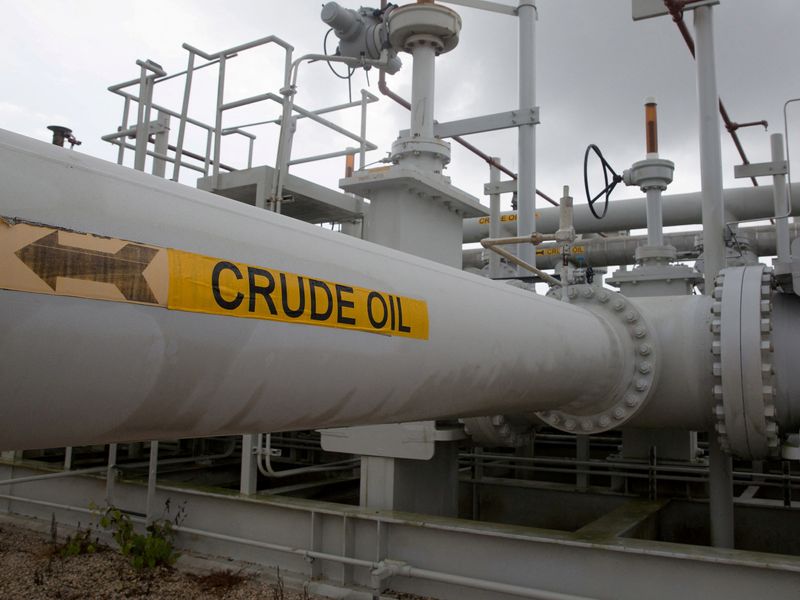WASHINGTON (Reuters) -The U.S. Energy Department said on Friday it will begin buying back oil for the Strategic Petroleum Reserve, or SPR, the first purchase since this year's record 180 million barrel release from the stockpile.
The department will buy up to 3 million barrels for delivery in February, a senior official told reporters.
President Joe Biden announced the 180 million sale in late March to combat surging gasoline prices that boosted inflation after the February invasion of Ukraine by Russia, the world's largest exporter of fossil fuels.
The sale shrunk levels in the SPR to about 380 million barrels, their lowest since 1984, raising concerns about energy security.
"We'll be releasing a solicitation to purchase 3 million barrels of oil for delivery in February of next year, 2023," the official said.
Contracts will be awarded to energy companies by Jan. 13.
"This approach will lock in a price upfront when companies submit their bids," the official added.
To help relieve supply shortages at refineries after an oil spill last week shut down the Keystone crude pipeline, the Energy Department will also execute an exchange of about 2 million barrels from the SPR, that companies will have to send back at a later date.
"We are able to do that at the same time we're doing the 3 million barrel buy-back," the official said.
The White House said in October it would buy back oil for the SPR when prices at or below about $67-$72 per barrel, a bit below where U.S. benchmark futures were trading on Friday at about $75. [O/R]
"We're gonna try to be nimble and flexible here," the official said, adding that the department likes where prices are now for exploring buy-backs.

"It'd be very useful to put this notice out now and to see what the market would provide in terms of interest and at what price level for that," the official said.
The Energy Department said buying oil back at about current prices is "an opportunity to secure a good deal for American taxpayers by repurchasing oil at a lower price than the $96 per barrel average price it was sold for, as well as to strengthen energy security."